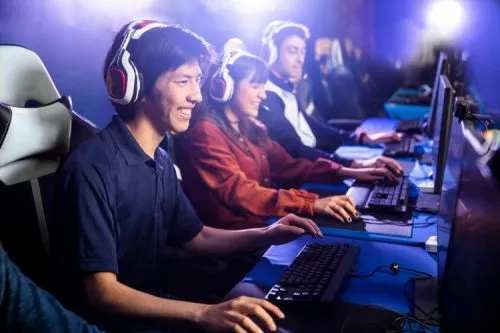- 28 December 2023
- 186
Gaming and Mental Health: Exploring the Impact on Well-being

Video gaming has evolved from a mere pastime to a cultural phenomenon, influencing individuals of all ages. Its effects on mental health have garnered substantial attention, prompting discussions on its advantages and drawbacks. Understanding the nuanced interplay between gaming and mental well-being is crucial for a comprehensive assessment.
Positive Aspects
Stress Relief: Gaming often serves as a form of escapism, offering a reprieve from real-life stressors. Immersive gameplay can transport individuals to alternate realities, providing a mental break and reducing stress levels.
Cognitive Enhancement: Certain games necessitate problem-solving, strategic planning, and quick decision-making. Engaging in these activities can enhance cognitive functions, including memory, spatial awareness, and attention to detail.
Social Connection: Multiplayer and online gaming platforms facilitate social interactions, enabling individuals to forge friendships and build communities. This connectivity can be especially beneficial for those who struggle with socializing in traditional settings.
Therapeutic Potential: Gamified therapy has gained traction as a method to address mental health issues. Video games are utilized to assist individuals in managing anxiety, depression, PTSD, and other conditions.

Concerns and Challenges
Addictive Behavior: Excessive gaming can lead to addiction, characterized by an inability to control gaming habits, neglect of other responsibilities, and withdrawal symptoms when not gaming. This addiction can significantly impact mental health and overall well-being.
Impact of Excessive Screen Time: Prolonged screen exposure associated with gaming may contribute to issues like eye strain, disrupted sleep patterns, and sedentary lifestyles. These factors can potentially exacerbate mental health problems.
Negative Social Effects: While gaming can foster social connections, excessive gaming may lead to social isolation, especially if individuals prioritize gaming over real-world relationships. This isolation can contribute to feelings of loneliness and depression.
Aggressive Behavior: Some studies suggest a correlation between violent video games and aggressive behavior, particularly in younger players. While causation is debated, the exposure to violent content can potentially influence attitudes and behaviors.
Balancing Act
Achieving a balance between reaping the benefits of gaming while mitigating its adverse effects is crucial:
Moderation: Encouraging moderate and responsible gaming habits is essential. Setting time limits, taking breaks, and engaging in diverse activities can prevent overindulgence.
Parental Guidance: Parents play a pivotal role in guiding children’s gaming habits. Monitoring screen time, selecting age-appropriate games, and fostering open communication about responsible gaming practices are vital.
Education and Awareness: Raising awareness about the potential risks of excessive gaming and promoting digital wellness initiatives can empower individuals to make informed choices.
Diversification of Activities: Encouraging a balance between gaming and other activities, such as physical exercise, hobbies, and social interactions, promotes a well-rounded lifestyle.

Conclusion
Gaming’s impact on mental health is multifaceted, encompassing both positive and negative aspects. While it offers stress relief, cognitive stimulation, and social connections, concerns about addiction, excessive screen time, and potential negative effects on behavior remain valid. Understanding and navigating these complexities involve embracing moderation, fostering responsible gaming practices, and prioritizing a diverse range of activities to maintain mental well-being. By striking a balance and approaching gaming mindfully, individuals can harness its benefits while mitigating its potential drawbacks for a healthier relationship between gaming and mental health.

